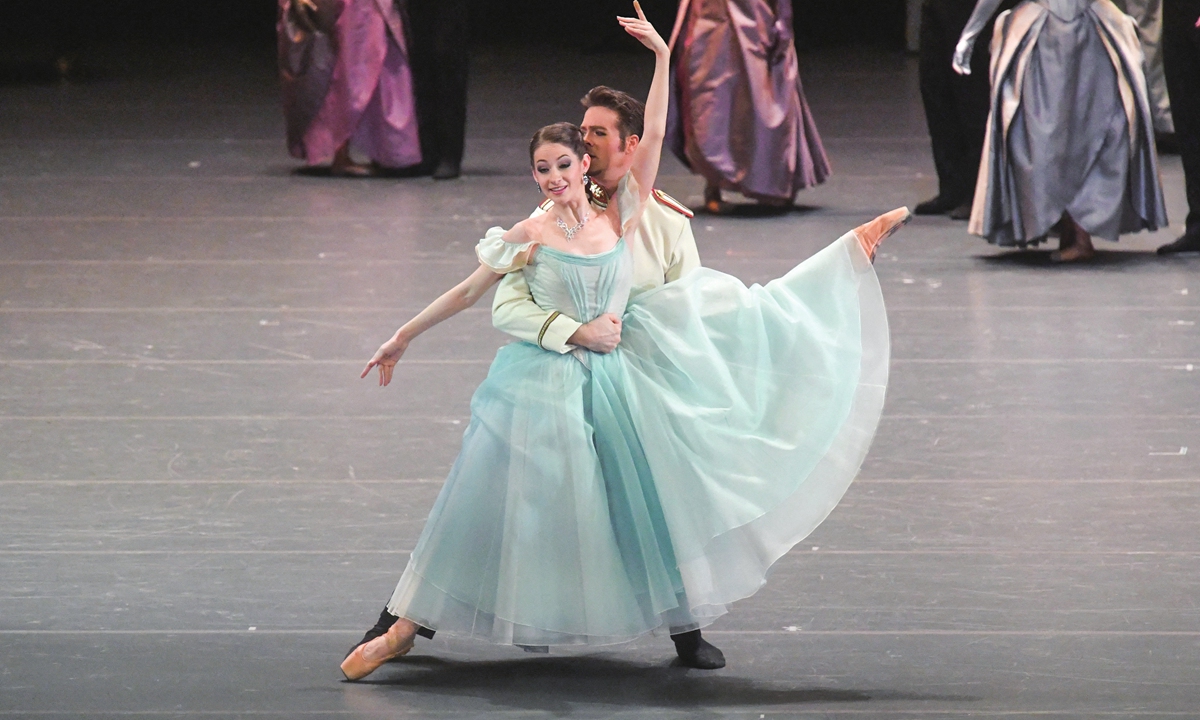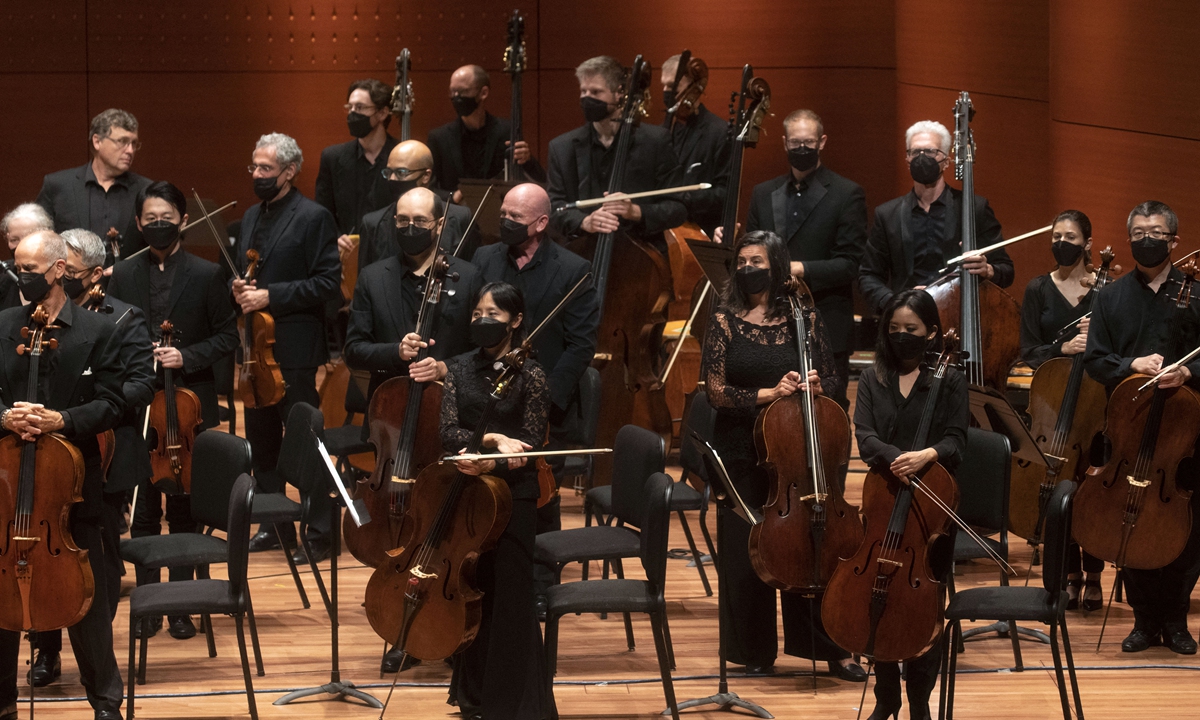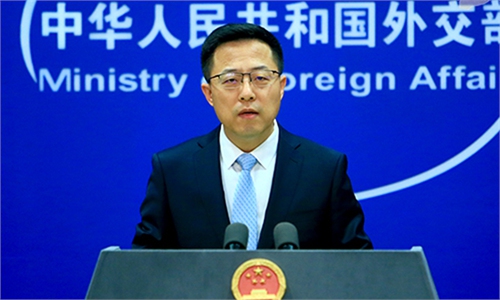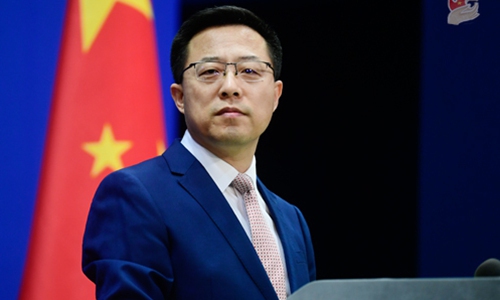ARTS / DANCE
Russian art continues to shine on world stage despite sanctions
Shared legacy of mankind

Dancers rehearse for ballet Anna Karenina at the national theater in Munich, Germany, on November 16, 2017. Photo: AFP

Musicians stand during the New York Philharmonic's first concert after its reopening at the Alice Tully Hall in New York, on September 17, 2021. Photo: AFP
Until May 8, one of the UK's most prestigious art halls, the London Victoria and Albert Museum is hosting an exhibition dedicated to the legendary Russian goldsmith Peter Carl Fabergé. In New York, the New York Philharmonic played works by Rimsky-Korsakov on Thursday. Additionally, there are other cultural events in South Korea, Australia and China that are highlighting Russia's fine art legacy.Art exchanges go on
Showcasing over 200 objects that symbolize Russian craftsmanship, the London exhibition displays 13 artworks from Russian museums, including Fabergé's world-renowned "egg" that Russian President Vladimir Putin gifted to the State Hermitage Museum in St. Petersburg, Russia.
The London exhibition described by the organizer as a story of "cosmopolitanism and the value of diplomacy" is currently sold out.
It is not the only exhibition of Russian culture to remain popular amid the international conflict in Eastern Europe.
"Russia has been making abundant art contributions to the world, especially its classic art legacies and also more popular art forms such as film," Fan Qingqiong, an art critic based in Chengdu, told the Global Times.
Meanwhile, a recently ended exhibition of the Morozov Collection, which includes over 200 masterpieces from major Russian masters such as Malevich, Repin and Korovin, was a blockbuster event at the Louis Vuitton Foundation in Paris that attracted over 1.2 million visitors. On Monday, the center updated the visitor number to 1.25million to media.
The majority of these works were borrowed from institutions such as the State Hermitage Museum in St. Petersburg and the Pushkin State Museum of Fine Arts in Moscow. Following the show's closure, France has held to its promise to safely return these valuable works of Russian art despite broad international sanctions against Russia by the Western world.
Some art insiders have pointed to France's move amid the wide Western "anti-Russia" political climate as evidence that it is a generally held belief that cultural exchanges should not be held "hostage" by politics.
"As a field shared by all of humanity, culture and art play an important role in strengthening communication and promoting understanding and dialogue. If they are also involved in sanctions without restraint, it will not only be detrimental to the solution of current problems, but also exacerbate cultural rifts outside of politics and the economy," Huo Zhengxin, a law professor at the China University of Political Science and Law, told the Global Times on Monday.
Similar to the examples in Europe, Yuri Possokhov, the Ukraine-born international ballet dancer trained in Russia is enjoying great success in Australia with the ballet Anna Karenina, which is set to finish its run at the end of April. The music for the ballet was composed by Russia's Ilya Demutsky, one of the most sought-after composers in the world. The show has been given a great review by TimeOut Sydney, which called it "a stunning example of global artistic collaboration."
The call for continued cultural exchanges has gone out not only in the Western world, but also in Asian countries such as China and South Korea.
Besides the Kandinsky, Malevich and the Russian Avant-Garde: Revolutionary Art in Seoul, another new art exhibition of over 100 works of Russian 20th century artists was launched in Beijing on April 2. "Art is a universal language that can break the ice when it comes to differences and prejudices better than any political pressure," He Guiyan, an art critic, told the Global Times.
"The exhibition in China doesn't mean any political support, but it is the maintenance of cultural communication, which China always encourages," Zhang Yiwu, a cultural expert in Beijing, told the Global Times.
Political roadblocks
Yet the sanctions against Russia have caused challenges for these art exchanges, such as the return of Russian works to their home country.
Finnish customs stated on Wednesday that they had stopped Russian artworks originally on loan to museums in Italy and Japan from returning to Russia due to European Union sanctions.
Fortunately, according to Reuters on Friday, Finland decided to return the valuable works of art to Russia.
Georgy Egorov of the Russian Embassy in China, told the Global Times, "Currently Russian museums are waiting for the return of its masterpieces from Europe."
According to experts, any sanctions imposed on artworks by countries not directly involved in the Russia-Ukraine crisis are not only inappropriate, but also have no legal basis.
Huo noted that unilateral sanctions are a gray area in international law as current international treaties do not have clear provisions on whether not refusing to return cultural relics and artworks due to sanctions is in line with international regulations.
He pointed out that sanctions are not an effective means to solve problems. Instead, they will accelerate the spillover of the crisis and bring about new and complex problems.
Zhang Hongbo, director-general of the China Written Works Copyright Society, told the Global Times on Monday, "In the West, intellectual property is one of the most basic human rights. Sanctions damage the reasonable benefits of exhibitors and rights holders."



